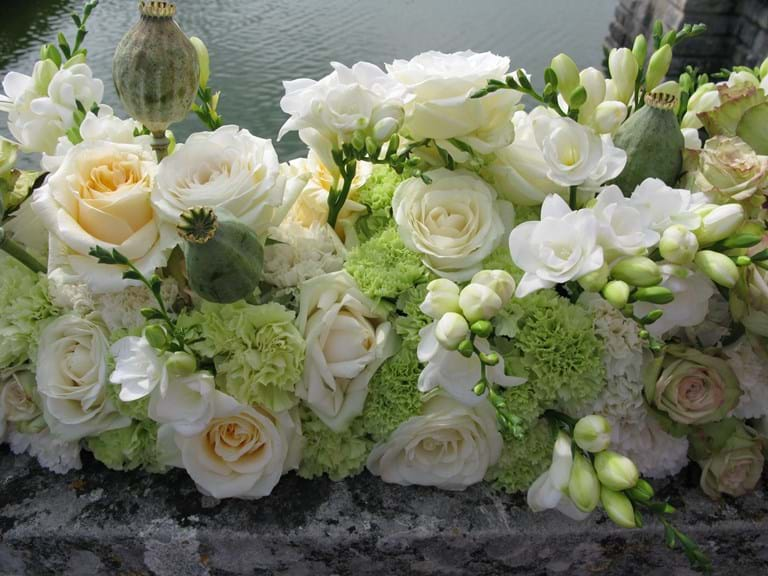Dealing with Fear of Death
When we are very young it seems as if life will go on for ever. Death and mortality happen to other people, not to us.
At some point we have our first intimations of the facts of death. This may happen when we learn that a grandparent has died or we find a pet has passed away. We discover that death is a reality. If death came for these people or beings that we know and love, then it can come for us too.
However, the adults around us are rarely ready to deal with our fear, or their own death anxiety. They may react by telling us that everything is fine and not to worry. They explain that there were unusual circumstances and the pet or the relative was old, or ill, or it was ‘their time’. We’re encouraged to believe that we are different and that our uniqueness will somehow protect us.
Death anxiety may resurface again in adolescence. Teenagers commonly react to the subconscious fear of death by indulging in risk-taking activities, in an effort to feel immortal. In our twenties and thirties, when we are building a relationship, a family and career, death anxiety tends to be dormant. But often it rises again in middle-age and may be acted out in affairs, which give us the illusion that we can renew life indefinitely and start all over again.
Why We Fear Death So Much
Death anxiety never goes away, because it is founded on a profound but simple truth; we too one day will die. Yet our lives are set up so that this truth can be ignored. We are engaged fully in day to day activities, in goals and plans that give us the illusion that there is only the future.
Society doesn’t encourage us to look death in the face. In fact thinking about death at all is considered morbid or absurdly negative.
If we do begin to consider our mortality, a whole host of frightening questions and realisations follow. One day we will no longer be here - what can that possibly be like? How can we no longer exist? Will dying be painful? Will we face judgement after death? What will happen to our loved ones after we die? How will their storylines play out?
We may also fear death because our lives feel unfulfilled. There may be many things we longed to do or achieve, which remain undone. We may feel as if we have hardly lived, certainly not lived fully.
How Counselling for Death Anxiety Helps
Thinking deeply about death is hard since it’s such a vast unknown. Few people will discuss death openly with us, so we may feel we are quite alone in our concerns.
First and foremost, counselling provides a way to explore your anxiety, to find out what is really going on for you. With a warm and understanding therapist, you will be able to look at your fears of death and how they are manifest without having them minimised. You will be taken seriously.
Your death anxiety may be prompted by the death of a loved one, or by a diagnosis of terminal illness. In this case it’s common to react with denial or disbelief, followed by a long period of mourning and a whole host of feelings, such as anger, fear, anxiety and grief. All these feelings need to be acknowledged and worked through. In counselling it is possible to do this without having to worry about bringing other people down or being told that we are being morbid. If you feel anxious when talking about the end of life/death, maybe it's time to look at your life in the present-are you living the way you want and are you fulfilled?
Imagining our own death and attempting to explore what death means to us, is not something that can be done once and ticked off the list; you may need to do it again and again, from every angle, until it becomes so familiar it loses some of its terror. In addition, looking at death and acknowledging life is finite can help as a checkpoint to things we want to accomplish and the legacy we want to leave behind. Counselling makes this possible. It may also be helpful to do this still more times at later stages in life, as the reality of dying draws nearer.
Although working with your death anxiety in counselling may be deep work, it can also be liberating and there are many benefits. If you feel pain this may be associated with regrets and missed opportunities and be a springboard for you to act now to avoid regret. Counselling for death anxiety can be a chance to look more closely at and discover what is really important to you. By thinking about how your life would look on your deathbed, it’s possible to realise what you truly value, what remains unsaid or undone and how you would like to leave your mark in this world.
People who have explored their death anxiety also tend to be calmer than others. This is because they are truly in control of their lives. They are more able to focus on now and on what is truly important. They find meaning in the present, knowing it won’t continue forever, knowing that each moment is the more precious because it will never come again. In short, looking at death straight in the eye, can open up the opportunity for you to live an authentic, rich and fulfilling life.

